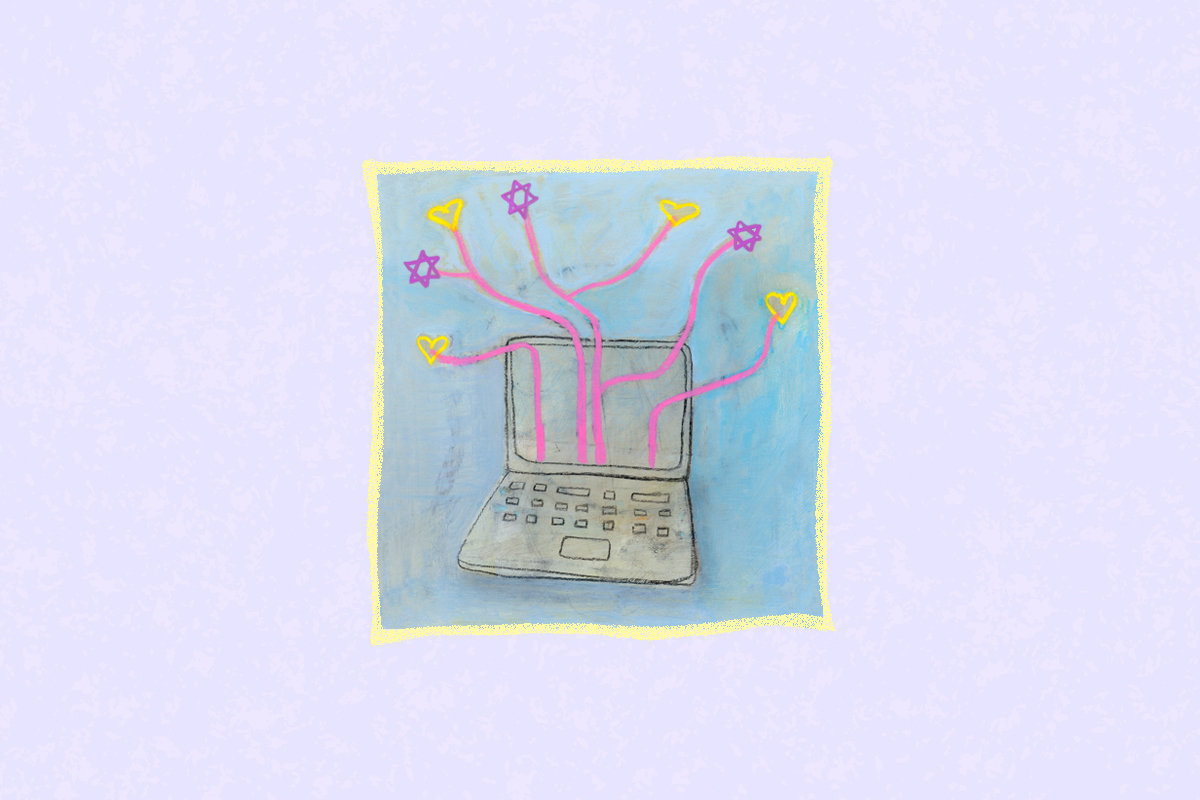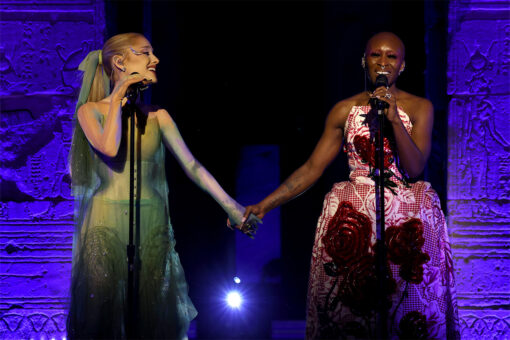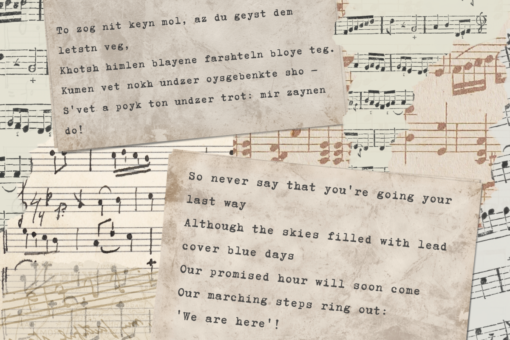Last month, I formally joined the Jewish people. I had been thinking about this day for years, imagining what I would be asked, how I would respond, how I would feel. I wore my favorite dress, did my makeup, practiced my Hebrew, and exchanged excited texts with my rabbi. I was ready, but instead of walking into the headquarters of the UK Reform Movement in London like I had always planned, I walked downstairs to my living room, turned on my laptop, and logged into a video call.
This was not the way I imagined it would go, but as my date at the beit din (rabbinic court) approached, so did a deadly virus.
I stopped going into my office. I lost my job. Then I got an email telling me that my appointment had been canceled. In the haze of the crisis, the disappointment of missing my conversion date barely registered. But then another email arrived: I would still be able to meet with the rabbis, but online instead of in person.
My rabbi joined the call — she and I grinned at each other through our webcams. She reassured me that my Hebrew would certainly pass muster. She told me she was proud of me. I felt completely supported and held. Then, I was “moved” into another virtual room in the call with the rabbis who would be interviewing me. They asked beautiful, challenging, insightful questions. The time flew as I kvelled about my Jewish life, my Jewish soul, and everything that brought me to this moment.
After they deliberated, my rabbi and I joined them as they welcomed me formally into the Jewish people. I cried, overflowing with joy. I don’t have a final certificate because I haven’t been to the mikveh (ritual bath). The only progressive mikveh in the country is in London, so I will be venturing out to the countryside one early morning as soon as I am out of isolation.
You might think that I feel cheated. After years of study, commitment, and organizing with my Jewish community, all I got was a Zoom call. But I don’t feel cheated. Not at all. In many ways, it was perfect.
You see, I started my journey in an online community. I was living in Germany and my only local egalitarian community was German-speaking. Knowing neither German nor Hebrew, I wasn’t comfortable getting fully involved. So I did what anyone of my generation would do: I went online. There, I had the privilege of discovering an entire universe of people reimagining what it would mean to be in a Jewish community even when we might be isolated.
I discovered the Judaism Unbound podcast and joined in on their Elul Zoom calls leading up to the High Holidays. I joined a Discord server where we kvetched and shared and argued and just were together in a Jewish space. As I was researching the process of formally joining the Jewish people, I heard again and again that being physically near a community was essential. If you didn’t live near one, your options were to travel or move. I met people in rural France, Russia, and other far-flung parts of Europe who had no access to progressive communities and no resources to pack up and move. Virtual minyans were established so people could say Kaddish and light Hanukkah candles video calls. They made do, knowing that halakhic status might always be out of reach.
When I moved to the U.K. and I was finally able to join a synagogue, I was already Jewish. It was hard to explain to people in the mainstream Jewish community how the community that I had found online could be as good and as valuable and as important as any synagogue. A year ago, the idea that we could have thriving communities and Jewish rituals entirely online was radical — reserved for the bleeding edge of Jewish innovators.
Today it’s normal. Today it’s all we have.
Due to social distancing, the wider Jewish community has been forced online, and while I grapple with the many difficulties that this situation presents, I also feel a sense of overwhelming gratitude. There’s so much potential in this new reality.
This is the future of Jewish life. We are a people completely scattered across the world, and we have never had the chance to be so connected as we are right now. From my home in Manchester, I can pray with a community in New York, study with a pop-up havurah in San Francisco, and do morning services with rabbis from Scotland to Brighton to Jerusalem. I believe that this unprecedented moment of connectedness is one of the most magical, revolutionary moments in the history of the Jewish community.
I’ve been thinking about the next revolution that is coming for Judaism, just like when the Second Temple fell and Jews were forced to reinvent what it meant to be Jewish, giving birth to the rabbinic tradition. As a people, we were so traumatized by the fall of the Temple that we still fast, we still cry. But everything we have today was built in the ruins.
So here we are again. The pain and the weight of this are unbearable sometimes. We know that many in our communities will lose the most important people in their lives and will not be able to sit shiva for them. We grieve and we mourn.
I am trying to sit in the difficult place between my grief for the world and my joy at the possibility of this moment for all of us. It isn’t easy. I am not cheering, but we are building the foundations of a new era of progressive Jewish life. I cannot ignore the flame of hope inside of me because what comes next is so beautiful. It is a more inclusive, creative, free Judaism.
We’ll welcome so many Jews like me who felt like they were on the outside looking in, and, as a community, we will be so much stronger. We will adopt new ideas borrowed from Jewish leaders and thinkers on the fringes, scattered across the globe. Jews who cannot attend in person will continue to go to the beit din online, just like I did. Communal gatherings are not going to die but their exclusivity and inaccessibility will, and that gives me life. That gives me hope.
Header Image design by Grace Yagel.



